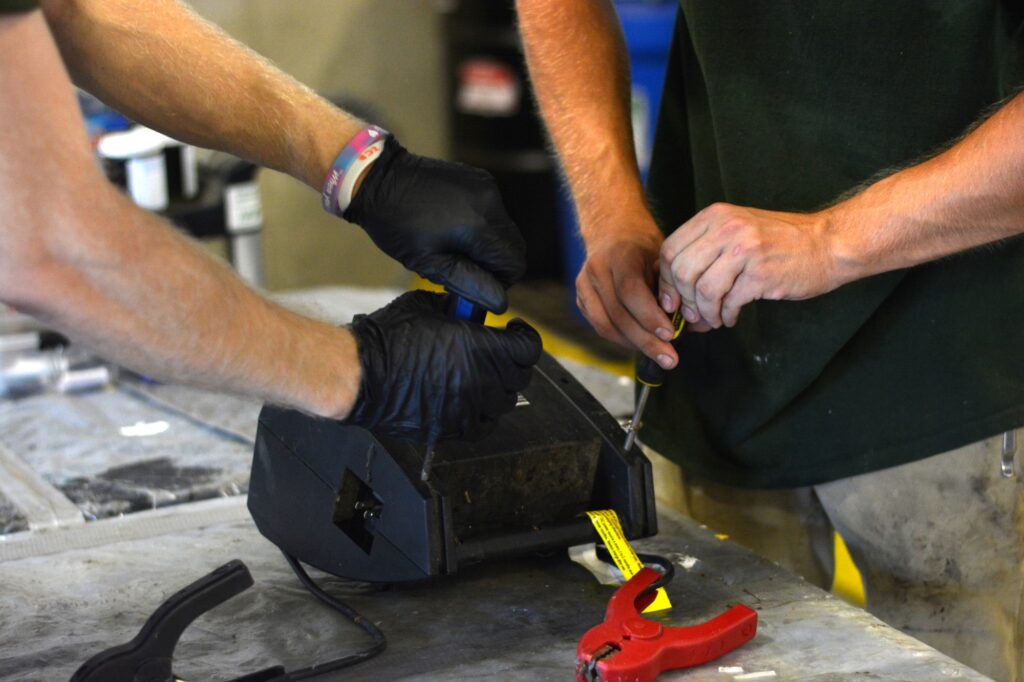Depending on your taste in music, there are certainly some types of heavy metal that are safe to store at home, but this article is about the other kind. Usually taking the form of old electronics such as dust-covered home entertainment systems and bulky TVs or hobbyist materials and chemicals, these heavy metal hazards can pose health risks at home or when you try to dispose of them. Learn how to identify and properly dispose of these types of household products to keep you and your environment safe.
Common Types of Heavy Metal Hazards
While there are many types of hazardous heavy metals, the ones most commonly found at home exist within everyday products, usually ones that have been discontinued in modern times due to these risks or are self-contained and don’t pose a risk unless damaged (including disposal).
- Lead: This heavy metal can be found in many electronics and batteries, especially in older cathode ray tube TV and monitors as well as car batteries. It can pose a health risk, especially to children when it is in the form of lead paint in older households.
- Mercury: A liquid heavy metal, mercury can be found in electronics, fluorescent lighting, thermostats & thermometers, and standalone. Exposure causes health issues, and its liquid nature means it can easily cause environmental damage.
- Cadmium: A heavy metal commonly found in certain types of batteries and related electronics, cadmium can cause health effects with long-term exposure. This metal can leach into the environment when improperly disposed of to cause damage there as well.
Other Related Hazardous Materials
Here are a few additional hazardous products you might find alongside the above heavy metals. While lithium is actually a very light metal, it’s also common in high-energy storage batteries and poses a fire risk when exposed to water, off-gassing, and damage. Other hazardous materials include toxic construction products like asbestos, explosive materials and gases, and radioactive materials. For a full list, see our blog: What Hazardous Materials Are Not Accepted for Disposal?
Dealing with eWaste, Batteries & Chemicals
The vast majority of the above-listed items can’t be disposed of at home, as heavy metals and chemicals present in these household products pose health and environmental risks if they go down the drain or into the landfill. Some also pose risks when being compacted into a garbage truck or exposed to moisture or other chemicals. Instead, you’ll need to take these hazardous products to an approved facility for disposal, like NEDT’s Household Hazardous Products Collection Centers. Some further reading below:
- eWaste: Why Electronics Shouldn’t Be Thrown in the Trash
- Everything You Need to Know About Hazardous Battery Disposal
- TV Disposal: Differences Between Old and New Monitors
If NEDT can help, please let us know by contacting us, including for a pick-up at your home. Learn what we accept (and don’t accept) and our locations and times to plan your trip today. Have more questions? Peruse our blog archive to get answers to many of the common questions we get, or check out our fact sheets! We’re here to make household hazardous waste disposal easy!



Leave a Reply